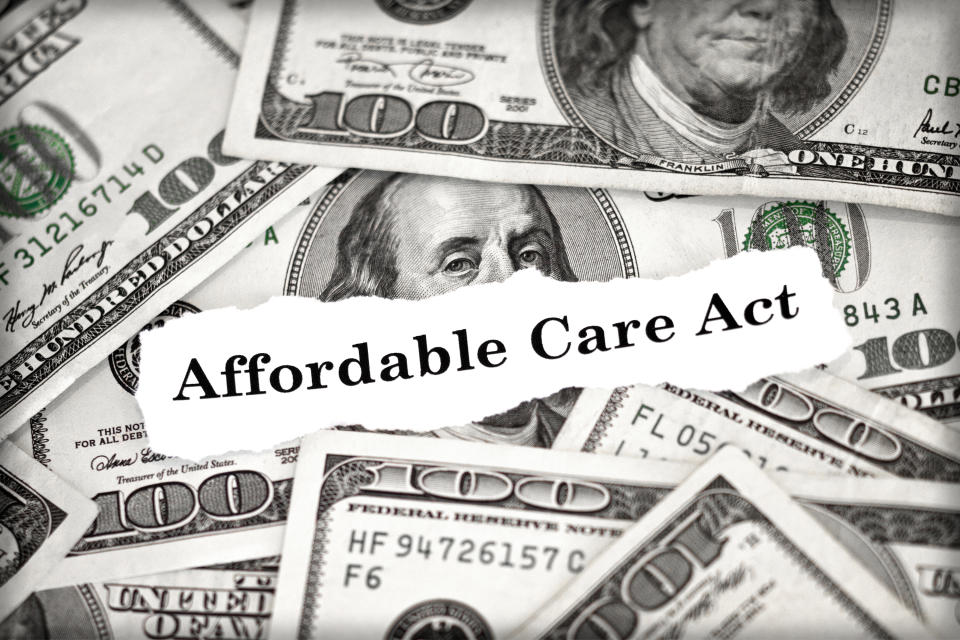Obamacare helped cut muni health care costs by millions: Study
The Affordable Care Act’s impact on the nation’s health care system has been controversial from the start, but a new study shows that one area has derived a clear benefit: In public hospital borrowing costs.
Recently, the University of Illinois in Chicago’s Government Finance Research Center funded a study on the impact of Obamacare on municipal hospital costs.
It found that since the Supreme Court upheld the ACA in 2012, short and medium-term health care bond yields have fallen by 39 basis points — translating into interest savings of $3 million per bond issue and a total of $1.74 billion across the economy. The impact was greater for urban and private hospitals, it added.
According to Dermot Murphy, co-author of the study and a UIC associate professor of finance, investor confidence was initially low.
“For all they knew, the ACA might be repealed next month,” he said. “After the Supreme Court ruling in 2012, however, investors got a shot of confidence that the [legislation] was more likely to remain the law of the land.”
Municipal bonds are an important source of funding for these hospitals, with $203 billion of healthcare municipal bonds outstanding in 2011 and $33.4 billion issued to finance hospitals in 2017 alone, according to the university’s study.
Yet Obamacare’s halo effect wasn’t entirely universal. The study classified the ACA effect on longer-dated debt as “weak, suggesting that repeal risk remains an obstacle to long-run financing.”
The average health care bond issue is more than twice as large as its average non-health care counterpart, “which is reflective of the healthcare sector being more equipment and labor-intensive than other sectors,” according to the study.
Controversy, but helpful to some hospitals

Nearly a decade after its passage, former President Barack Obama’s signature health care low remains a source of controversy.
When it was first signed into law in 2010, it created significant uncertainty for hospitals. Certain costs were covered as the customer base expanded — a “credit positive” event for institutions, according to the study.
Yet “on the other hand, the ACA was a credit-negative event for hospitals because of the accompanying cuts to Medicare reimbursement rates,” the study showed.
“Importantly, hospitals also became exposed to the risk that key subsidy provisions would be repealed and the Medicare cost would remain in place,” the authors said.
While the ACA successfully expanded coverage, employer-sponsored plans dwarf the individual market, and and medical costs continue to soar. Meanwhile, Republicans — including President Donald Trump — have tried repeatedly to repeal the legislation.
The University of Illinois study found that after the Supreme Court ruled the ACA’s constitutionality in 2012, it boosted municipal bond investor confidence and helped reduce borrowing costs for hospitals.
Meanwhile, bond yields fell by an additional 17 basis points in states that opted to expand Medicaid, the authors found. This translated into an additional projected interest savings of $320 million on the health care municipal bonds issued in those states.
After the Supreme Court ruling, the drop in interest rates “represented 28.9 percent of the average default spread between Aaa-rated and Baa-rated municipal bonds,” the UIC study found. That meant municipal health care bond issuers saved significant cash on their debt.
However, those financial gains could be reversed if the ACA comes under legal and political attack once more.
The researchers found that municipal bonds that mature in 10 years or more are generally weaker than those that mature in less than 10, which suggests investors are still nervous about the risks.
“Political uncertainty surrounding the ACA still remains a concern for municipal bond investors in the long run, even if legal uncertainty was significantly reduced following the Supreme Court ruling,” Murphy said.
If the ACA were scaled back or reversed, it could reverse $6.2 billion in savings for hospitals, and increases the likelihood of rural hospital closures, according to report.
“The numerous repeal efforts since 2010 suggest that there are significant long-run political risks associated with investing in the healthcare sector,” the authors said.
Anjalee Khemlani is a reporter at Yahoo Finance. Follow her on Twitter: @AnjKhem
Read the latest financial and business news from Yahoo Finance
